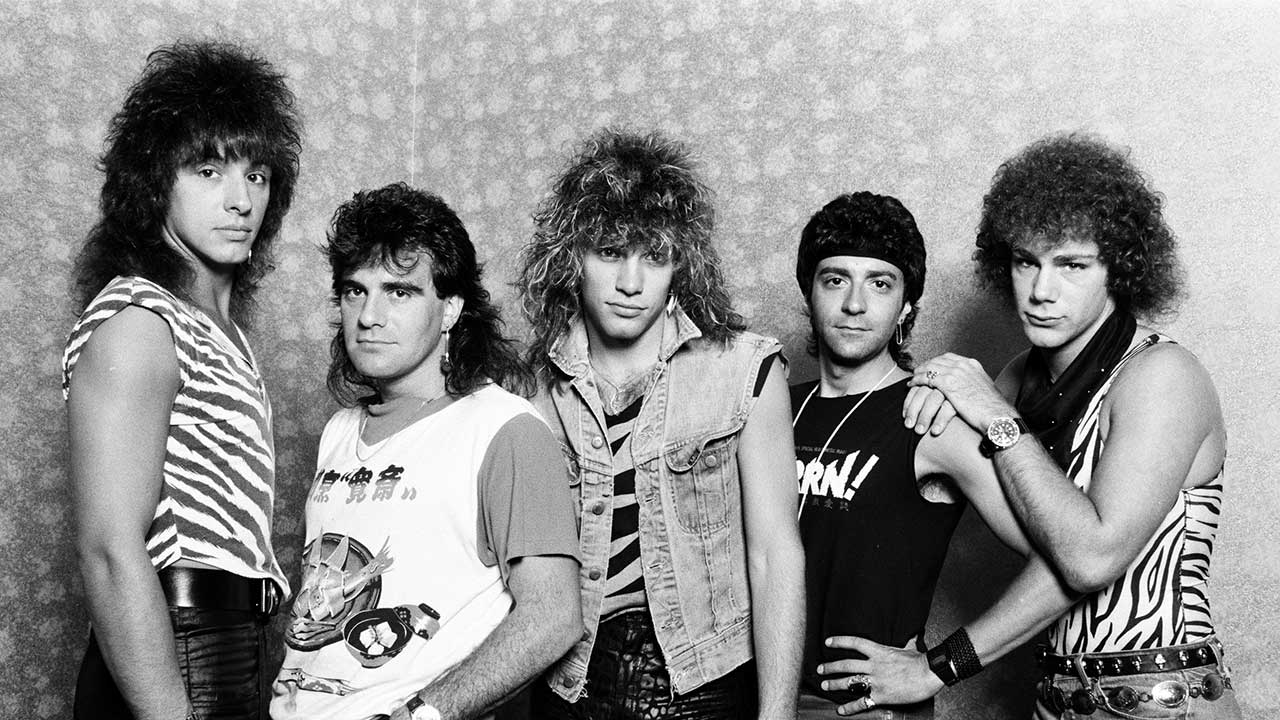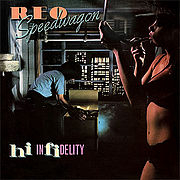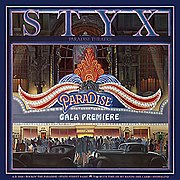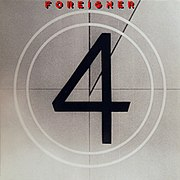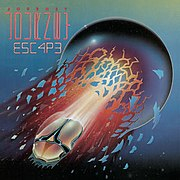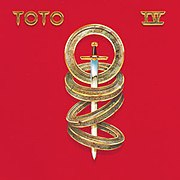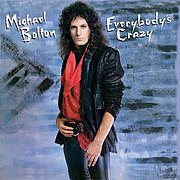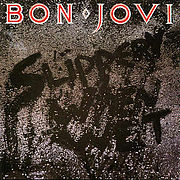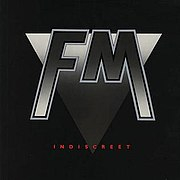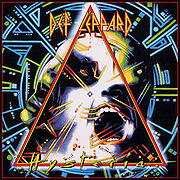Though many of its prime exponents had emerged during the previous decade, newcomers such as Bon Jovi and Europe stepped up to join the elite class of the melodic rock in the 1980s. New, more colourful recording techniques served to fine-tune the genre’s palette and with MTV calling the shots Def Leppard wreaked multi-platinum hysteria with their album of the same name.
These acts were among the era’s preeminent names, but let’s also give a shout-out to Survivor, Night Ranger, Balance, Diving For Pearls, Icon, Giuffria, Signal, Strangeways and a cast way too massive mention.

REO Speedwagon - Hi Infidelity (Sony, 1980)
This fine band from Illinois had existed for 12 years before their shot at stardom finally arrived. Seven studio and a pair of live albums paved the way for what became one of 1981’s biggest arena rock records, which eventually sold nine million copies.
Sung by Kevin Cronin (one of the most unmistakable voices in melodic rock), Keep On Loving You established itself among the most famous power ballads of all time, and the harder but equally memorable Take It On The Run, Don’t Let Him Go and Follow My Heart reminding us of the band’s rock credentials.
Styx - Paradise Theater (A&M, 1981)
The last of the Chicago band’s four consecutive triple-platinum releases, Paradise Theater was a concept piece based on a fictional, once glorious but now rundown entertainment venue in their home town – and also a metaphor for the American dream.
For all its unlikely plot, and in stark contrast to the arguments that by now had enveloped the band, Paradise Theater is a cohesive collection of songs, from the strident Rockin’ The Paradise to the pop of Tommy Shaw’s Too Much Time On My Hands, and the Dennis DeYoung crooner The Best Of Times. Styx were living on borrowed time, but it didn’t show.
Foreigner - 4 (Atlantic, 1981)
Disappointed by just three million sales of their previous album, and bickering incessantly, Foreigner were down to a four-piece for their fourth album. Inspired by producer Mutt Lange’s work with City Boy, Foreigner invited him to help their revised band find their feet.
Although Lange could be notoriously difficult, “we were lucky to catch Mutt before he became completely maniacal,” guitarist Mick Jones once told Classic Rock. Juke Box Hero, Urgent and Woman In Black vindicated this decision, the sleek ballad Waiting For A Girl Like You whetting most of the group’s appetite for more of the same.
Journey – Escape (Columbia, 1981)
Journey’s seventh studio album and the group’s fourth with Steve Perry on vocals, Escape represented the perfect distillation of the AOR sound. It’s an exquisite, almost flawless collection of songs, produced to shiny perfection by Kevin Elson and Mike Stone.
Although the full seismic impact of a second single, Don’t Stop Believin’, would not manifest itself until the following millennium when exposed to a new generation of fans, back in the 1980s Escape yielded three further smash 45s, topping the American chart and transforming Journey into stadium-level headliners. Its many delights remain much copied yet never surpassed.
Toto - Toto IV (Columbia, 1982)
Despite having trouble holding on to vocalists, Toto made some fine albums in the 1980s, including Isolation (’84), Fahrenheit (’86) and The Seventh One (’88). But it’s Toto IV that most fans come back to.
Featuring one of rock music’s most emotive ballads, I Won’t Hold You Back, plus the hits that saved the band from certain extinction by transforming them into a household name – Rosanna and Africa – Toto IV is quite brilliantly constructed. In 1982 the music industry was stunned when the band took home six Grammys for Toto IV. But six was only fair – it meant they could keep one each.
Michael Bolton - Everybody’s Crazy (Columbia, 1985)
What’s not to love about former Blackjack singer Michael Bolton’s fourth solo album (the second to use the abbreviated form of real surname Bolotin)? Joined by ex-Blackjack and future Kiss guitarist Bruce Kulick, plus AOR royalty in Mark Mangold, Peppy Castro and Terry Brock, Bolton wraps his lungs around some of the genre’s most accomplished compositions.
The title track set mature rock fans blubbing with joy, and Desperate Heart was later covered by Jefferson Starship. Alas, Bolton then turned his back on melodic rock, cultivated the worst mullet in history and became a granny pleaser of the most embarrassing kind.
Europe - The Final Countdown (Epic, 1986)
Few who saw it will forget the first time they saw poodle-permed Joey Tempest leading his equally fluffy bandmates through the video for The Final Countdown.
Although that title song would top the charts in 18 different countries, the Swedish band’s third album is far more than a one-trick pony. Rock The Night and Cherokee kicked like the proverbial mule, Danger On The Tracks was a fine slice of serrated-edged pomp, and Carrie was a top-notch ballad.
The album’s popularity was too much for guitarist John Norum, but after a period of inactivity the classic line-up reformed in 2003.
- Toto: The Story Behind Rosanna
- REO Speedwagon: We Thought Every Album Would Sell 10 Million Copies...
- Journey: a guide to their best (and worst) albums
- The Top 10 best Bon Jovi songs
Bon Jovi - Slippery When Wet (Vertigo, 1986)
It’s very difficult to overstate the effect that Slippery When Wet had on both a slowly stagnating melodic rock scene and the music world at large. Almost overnight it seemed Jon Bon Jovi went from virtual unknown to having his grin and vast hair on the covers of everything from Smash Hits and Metal Hammer to The Dental Gazette.
This album, Bon Jovi’s third, definitely merited all of that attention. From the passionate You Give Love A Bad Name and Livin’ On A Prayer to boisterous closer Wild In The Streets, it was the sound of a band igniting a genre and also their own self-confidence.
FM - Indiscreet (Portrait, 1986)
A slap in the face to all those who believed the UK would never produce a band to match the North American giants, Indiscreet was the debut from London-based five-piece FM. Modestly produced by their manager, it was the soulful vocals of guitarist Steve Overland and a batch of masterful songs that separated FM from the chasing Brit pack.
Lively, warm and infectious, songs like That Girl, American Girls, Hot Wired and I Belong To The Night all ably strode the pop-rock barrier, while Frozen Heart is a near timeless ballad.
Def Leppard - Hysteria (Bludgeon Riffola, 1987)
Indignant at he and his bandmates being mistaken for members of Europe or Bon Jovi at airports during the painstaking four years (during which drummer Rick lost an arm in a car accident) it took to complete this, Def Leppard’s fourth album, bassist Rick Savage once said that Def Leppard’s goal with Hysteria was “to show who sounds like who”.
With its tribal rhythms (Rocket), scintillating guitar harmonies (Animal, Love Bites, Pour Some Sugar On Me), and awash with the studio trickery of producer Mutt Lange, Hysteria went on to sell a staggering 16 million copies.
